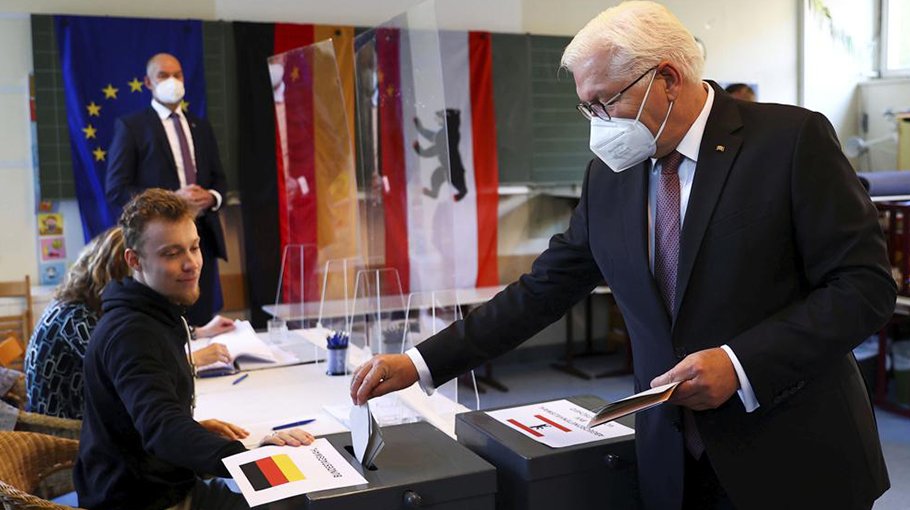Closely fought German election ushers in post-Merkel era


German voters are choosing a new parliament in an election that will determine who succeeds Chancellor Angela Merkel after her 16 years at the helm of Europe’s biggest economy.
Polls point to a very close race Sunday between Merkel’s center-right Union bloc, with state governor Armin Laschet running for chancellor, and the center-left Social Democrats, for whom outgoing finance minister and Vice Chancellor Olaf Scholz is seeking the top job.
Recent surveys show the Social Democrats marginally ahead. The environmentalist Greens, with candidate Annalena Baerbock, are making their first run for the chancellery, and polls put them several points behind in third place.
The Social Democrats have been boosted by Scholz’s relative popularity after a long poll slump, and by his rivals’ troubled campaigns. Baerbock suffered from early gaffes and Laschet, the governor of North Rhine-Westphalia state, has struggled to motivate his party’s traditional base.
About 60.4 million people in the nation of 83 million are eligible to elect the new Bundestag, or lower house of parliament, which will elect the next head of government. No party is expected to come anywhere near an outright majority. Polls show support for all of them below 30%.
Such a result could mean that many governing coalitions are mathematically possible, and trigger weeks or months of haggling to form a new government. Until it is in place, Merkel will remain in office on a caretaker basis.
Scholz said as he voted in Potsdam, just outside Berlin, that he hopes voters “will make possible ... a very strong result for the Social Democrats, and that citizens will give me the mandate to become the next chancellor of Germany.”
Merkel has won plaudits for steering Germany through several major crises. The new chancellor will have to tend the recovery from the coronavirus pandemic, which Germany so far has weathered relatively well thanks to large rescue programs that have incurred new debt. Laschet insists there should be no tax increases as Germany pulls out of the pandemic. Scholz and Baerbock favor tax hikes for the richest Germans, and also back an increase in the minimum wage.
Germany’s leading parties have significant differences in their proposals for tackling climate change. Laschet’s Union bloc is pinning its hopes on technological solutions and a market-driven approach, while the Greens want to ramp up carbon prices and end the use of coal earlier than planned. Scholz has emphasized the need to protect jobs as Germany transitions to greener energy.


